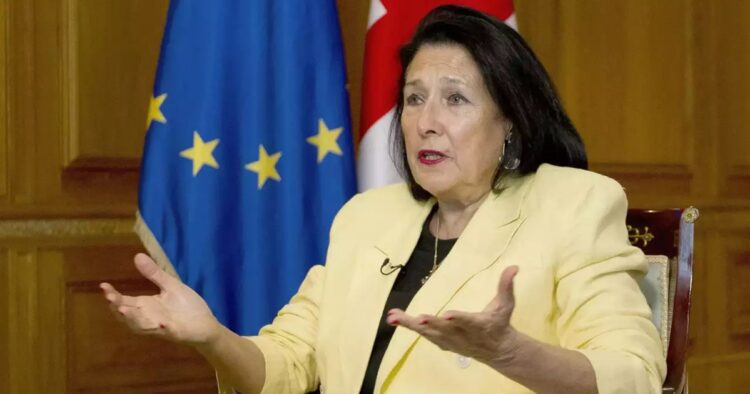Georgia’s parliament speaker, Shalva Papuashvili, announced plans to override President Salome Zourabichvili’s recent veto on a contentious law.
The legislation, which requires media and NGOs receiving over 20% of their funding from abroad to register as influenced by foreign powers, has sparked widespread protests. Critics fear it threatens democratic freedoms and Georgia’s EU aspirations.
Opposition groups have labeled the law as the “Russian law,” drawing parallels to Moscow’s crackdown on independent media and activists critical of the Kremlin.
However, the government defends it as necessary to curb harmful foreign influence and prevent destabilization efforts by unspecified foreign actors.
President Zourabichvili’s veto was swiftly met with defiance from the ruling party, Georgian Dream, which holds a majority in parliament. Papuashvili confirmed the parliament’s intent to override the veto, signaling a continuation of the government’s stance despite public outcry.
The bill’s similarity to a previously withdrawn legislation underscores its controversial nature, triggering renewed protests across Georgia. Demonstrators have clashed with police, prompting the use of tear gas and water cannons to disperse crowds.
European Union officials, including French President Emmanuel Macron and German Chancellor Olaf Scholz, expressed disappointment over Georgia’s deviation from shared European values. They criticized the law for undermining democratic principles and urged Georgia to reconsider its path.
Prime Minister Irakli Kobakhidze defended the law, claiming it enjoys support from over 60% of the population.
However, he provided no evidence to substantiate this claim. Kobakhidze accused President Zourabichvili of obstructing dialogue by vetoing the legislation, lamenting the missed opportunity for reconciliation.
The standoff between Georgia’s government and opposition, compounded by international scrutiny, highlights the delicate balance between sovereignty and democratic norms. As Georgia navigates its European aspirations, the fate of the controversial law remains uncertain amidst ongoing protests and political tensions.

















Comments